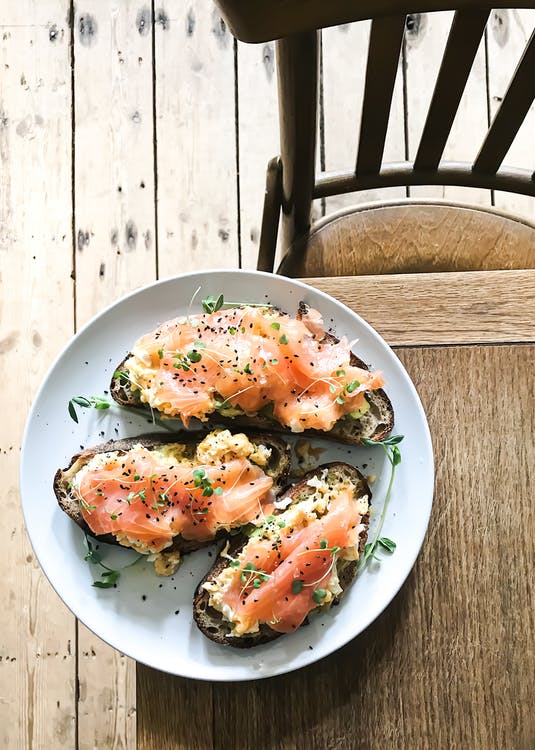Judging by all the protein shakes, powders, and bars out there, you get the impression that you need more protein. There’s a notion that it helps build muscles and weight loss. However, what’s the actual story?
Simply put, proteins are like Legos for the body on a biological level. Proteins are the building blocks making up the hormones, muscles, tendons, bones, and organs. They’re a big deal for your optimal health. However, the amount of daily protein intake isn’t a one-size-fits-all case. In this guide, you’ll learn how to ensure you’re taking enough protein for your body.
The protein amount you need changes with age:
- School-age kids: 19-34 grams/day
- Babies: 10 grams/day
- Teenage girls: 46 grams/day
- Teenage boys: Up to 52 grams/day
- Adult women: 46 grams/day and 71 grams/day if breastfeeding or pregnant
- Adult men: 56 grams/day
According to the Institute of Medicine, get at least 10% of the daily calories but not over 35% from protein.
Heads Up: When we say grams, we refer to the micronutrient protein grams and not the foods. For instance, a large egg weighs around 50 grams but only provides about 6 grams of protein.
Choosing the Healthiest Sources of Protein
Just about every food type has protein. However, some have more than others. Whether or not you take meat, you can still get enough protein from your diet. Besides proteins, what else are you gaining from protein-rich foods?
For example, you’d choose lean meat cuts over fattier cuts to limit saturated fat. You could also skip processed meats such as sausage and hot dogs to cut back on sodium.
If trying to get more omega-3s, you can go for tuna, salmon, or eggs fortified with omega-3s. Go for nuts, legumes, vegetables, and beans if looking for more fiber.
Can proteins help in weight loss and prevent weight gain?
Protein is crucial when it comes to weight loss. You need to take fewer calories than your burn to lose weight. Health experts suggest that protein intake increases the calorie number you burn by increasing your metabolic rate and reducing appetite.
Scientific evidence shows that consuming 25-30% of the daily calorie intake from protein increases metabolism by up to 80-100 calories daily, compared to lower protein diets.
Protein consumption is better than carbs or fat at keeping you feeling full and thus reducing calorie intake. Besides, protein does more than help you lose weight– it can also prevent weight gain. It makes it easier to stick to a weight-loss diet: low carb, low carb, or something in between.
Proteins and strength and muscle gain
Muscles are mainly made of protein. Like most body tissues, muscles are active and continuously being broken down and rebuilt. The body must produce more muscle protein than it breaks down to gain muscles.
This implies that there needs to be a net positive protein balance in the body. It’s often known as nitrogen balance since protein is high in nitrogen. As a result, if you want to build muscle, consume more protein and exercise.
High protein consumption can help you build strength and muscle. One gram of protein per pound of body weight is a common recommendation for muscle gain.
Does protein consumption have any negative health effects?
Protein has been unjustly blasted for several health conditions, such as osteoporosis and kidney damage. However, science doesn’t support any of these claims, though protein restriction is recommended for individuals with preexisting kidney issues.
Protein consumption could help fight diabetes and lower blood pressure, the two major risk factors for kidney disease.
So, where should you get your daily protein from?
The healthiest protein alternatives are typically from plant sources. However, when eaten in moderation, the right meat types are also ideally healthy. Here is a list of the ideal places to source your protein:
- Nuts
- Soy
- Beans and Lentils
- Seeds
- Fish
- Lean cuts of pork or beef
- Skinless, white turkey or white-meat
- Low-fat dairy
- Egg whites
- Whey protein
Bottom Line
Proteins are the building blocks making up the hormones, muscles, tendons, bones, and organs. According to the Institute of Medicine, get at least 10% of the daily calories but not over 35% from protein. Protein consumption is better than carbs or fat at keeping you feeling full and thus reducing calorie intake.
Besides, protein does more than help you lose weight- it can also prevent weight gain. High protein consumption can help you build strength and muscle. Protein consumption could help fight diabetes and lower blood pressure, the two major risk factors for kidney disease.
Now that you’re a protein PRO and know your daily protein intake, you can share the information with your friends and family.


